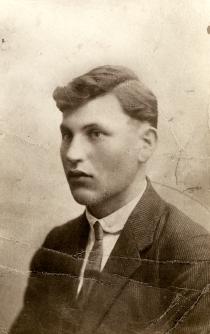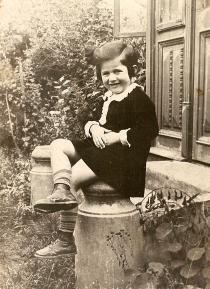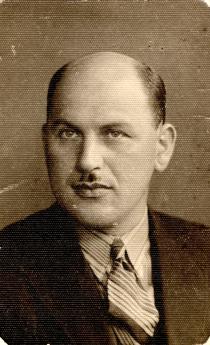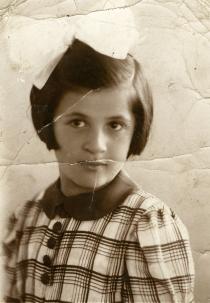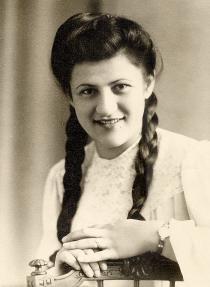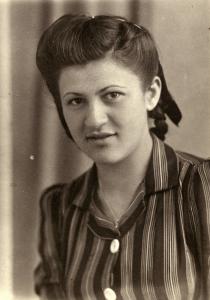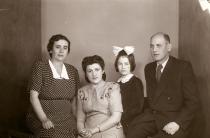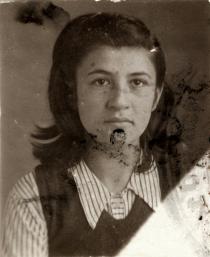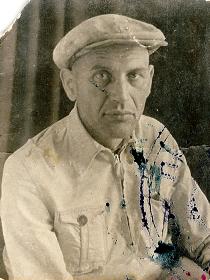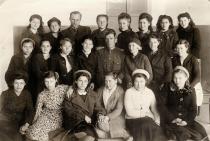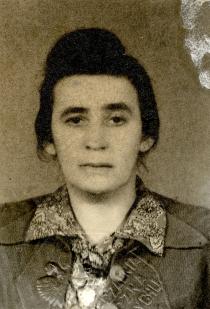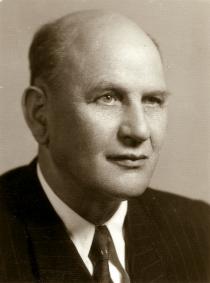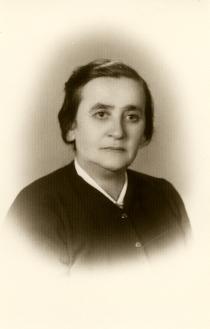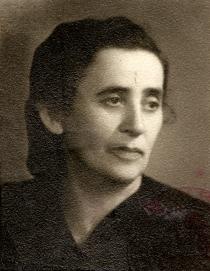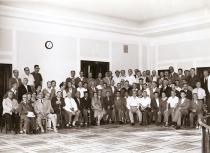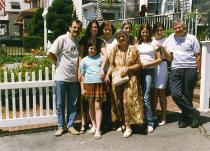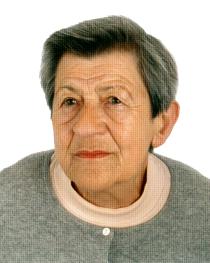This is a picture of my family in the late 1940s, after the war. These are: my parents, Jakub and Mina Fischbein, my sister Uliana Gabara, nee Fischbein and me. It was taken in Walbrzych in 1948 or 1949 by a professional photographer. We probably had it taken in order to send it to my father's aunts, who had been living in the USA since the 1920s. After the war my father started to correspond with them.
Before the war I lived with my family in Tysmienica near Stanislawow. When the German-Soviet war started in June 1941, I left with my parents and my tiny baby sister, who was born in March 1940, for Tashkent. We finally came back in the summer, June or July, of 1946. We traveled for several weeks. We took mostly freight trains which stopped no one knew where and for how long. After our return we first lived for a short while in Zary , then Wroclaw and then Walbrzych.
The return to Poland meant I felt a stranger again. When a few days later I went out on the street and heard a group of youngsters speaking Russian I followed them and asked, ?Rebiata [Russian for ?kids?], you?re talking about school. Is there a Soviet school somewhere here?? They showed me. And I went straight in, without even consulting my parents, and said I was Polish, recently repatriated, and I would like to finish their school and take my matriculation exams there. No problem, they said. So I took the news home. There were many students, children of officers; I was the only non-Russian student. Two students in my class, a boy and a girl, were much older. I think they were in active service, for they wore uniforms to school.
I finished 10th grade and took my matriculation exams in 1947. The exam covered lots of subjects: both written and oral exams in math and Russian. But there were also: geography, history, physics, chemistry, and a foreign language, I can?t remember which. The newly repatriated young people didn't have to take exams to college. Anyway, I didn't take one to study medicine in Wroclaw.
My parents remained in Walbrzych. My mother didn't work, she took care of the house. My father was the chair of the local Jewish Committee in Walbrzych between 1946 and 1949. It was an organization in which Jews gathered to help other Jews. At the same time my father made many enemies, because he tried to persuade Jews not to leave Poland. He argued they should stay, because Poland was going to be a different place. After the Kielce pogrom in 1946, however, I?m not sure how many there were whom this argument would stop from leaving. Everybody who could, who had some family, who found sponsors, thought about emigrating.

